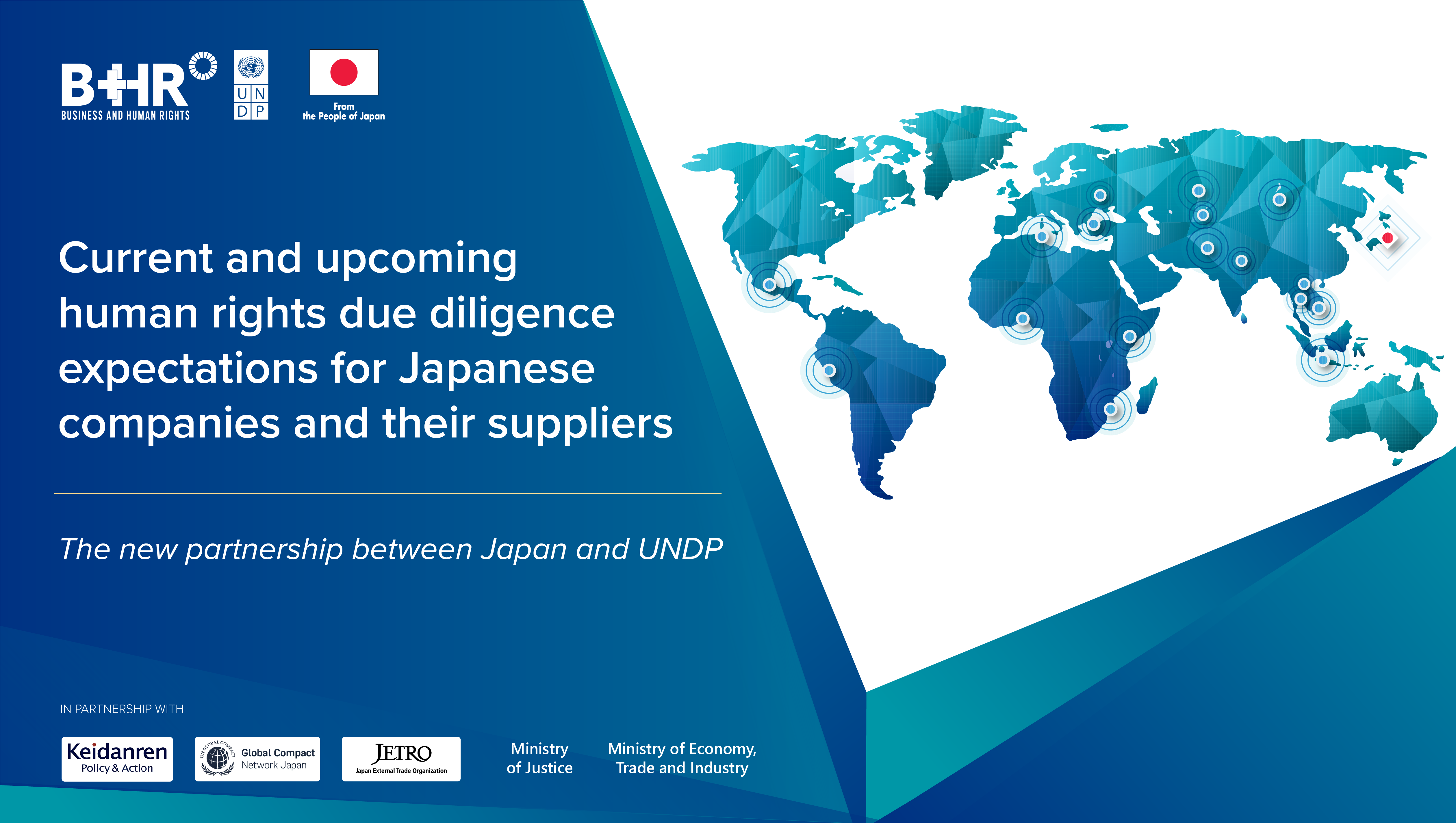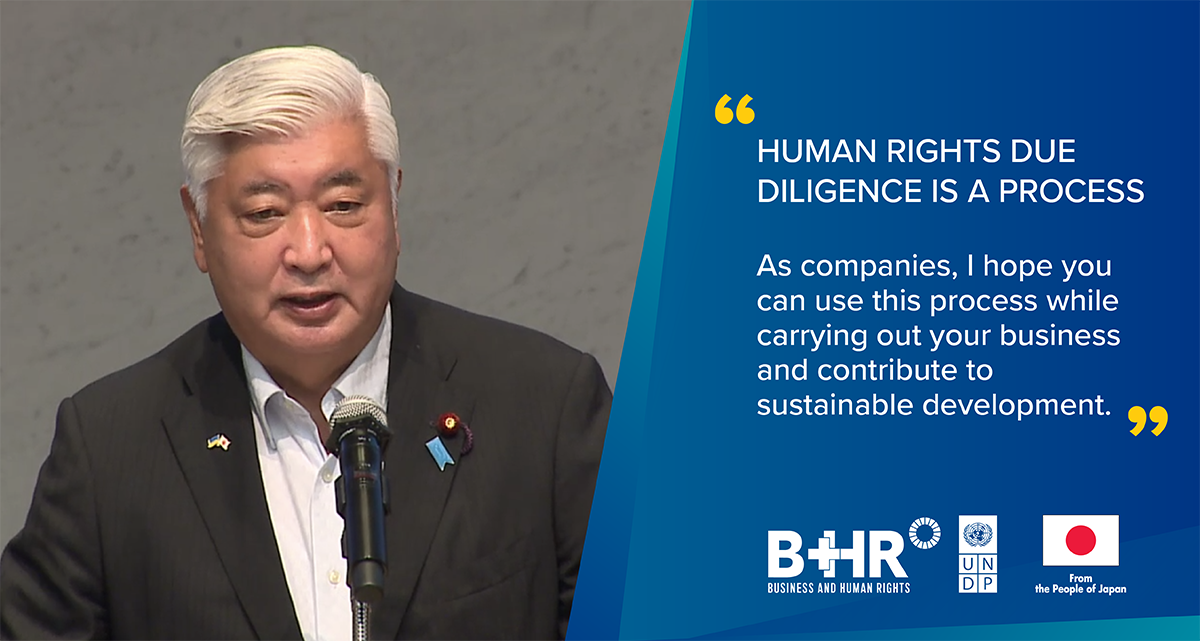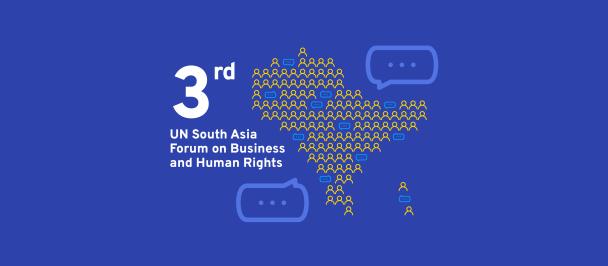Inception seminar outlines current and upcoming human rights due diligence for Japanese companies and their suppliers
July 18, 2022

Companies around the world are faced with rapidly increasing levels of pressure to know and show the impact that their operations and those of their supply chains have on society.
“Investor interest, consumer pressure, and calls for regulation have led to increased expectations for business. The private sector can play a leading role in developing a more equitable and sustainable society,” said Asako Okai, UN Assistant Secretary-General and Director of the UNDP Crisis Bureau.
A seminar held on 17 June 2022 on ‘Current and upcoming human rights due diligence expectations for Japanese companies and their suppliers: The new partnership between Japan and UNDP’ aimed to outline the evolving expectations of Japanese companies to carry out human rights due diligence (HRDD), a process businesses carry out to identify, prevent and mitigate adverse impacts on people and the environment, thereby helping them manage potential and actual human rights impacts.
More than 120 business and government leaders and business and human rights experts joined the event, held at Keidanren Kaikan in Tokyo, and more than 800 people participated virtually.
During the opening session, Gen Nakatani, Special Advisor to the Prime Minister on International Human Rights Issues, emphasized the vigilance needed to effectively carry out human rights due diligence (HRDD).
“Human rights due diligence is a process”, he said. “It is not about identifying a specific human rights violation, and when it is remedied, your job is done. It is something we need to do continuously,” he said, encouraging companies to integrate HRDD into their operations to better contribute to sustainable development.

Gen Nakatani, Special Advisor to the Prime Minister on International Human Rights Issues
Interest in responsible business conduct has grown since the Japanese government adopted a national action plan on business and human rights in 2020. ODAWARA Kiyoshi, State Minister for Foreign Affairs of Japan, noted that the national action plan includes measures the government will take and expresses expectations for the promotion and introduction of HRDD in corporate activities.
Ken Toyoda, Director of the Business and Human Rights Policy Office at the Ministry of Economy, Trade and Industry, shared feedback from the Japanese business community collected during the survey on practices of Japanese companies on HRDD which resulted in development of guidelines for respecting human rights in supply chains. Many companies surveyed recognized the importance of HRDD, while acknowledging a need for more guidance on how to conduct it.
Other speakers discussed the need to integrate heightened human rights due diligence in conflict-affected countries, the role of CSOs, the importance of dialogue, and ways to support companies in meeting HRDD expectations.
The event – organized by UNDP and the Ministry of Foreign Affairs of Japan, in partnership with the Japan Business Federation (Keidanren), Japan External Trade Organization (JETRO), and Global Compact Network Japan – also introduced details of a global partnership between UNDP and the Government of Japan on business and human rights. The project is currently operational in 17 countries: Ghana, Indonesia, Kazakhstan, Kenya, Kyrgyzstan, Lao People’s Democratic Republic, Mexico, Mongolia, Mozambique, Nepal, Pakistan, Peru, Thailand, Tunisia, Turkey, Ukraine, and Viet Nam.
The partnership aims to help companies address the question of ‘how’ to promote responsible business conduct through two objectives. The first is supporting Japanese companies and their suppliers in efforts to support development and drive just recovery from COVID-19 and while remaining competitive by ensuring compliance with human rights standards.
This will be primarily done through the B+HR Academy, under which UNDP will assess the specific human rights impacts and HRDD expectations that may be linked to the operations of Japanese companies and their suppliers in each of the 17 country contexts. Using the context assessments UNDP will conduct training among Japanese companies and their suppliers to improve the capacity of to respond to impacts and promote HRDD including in Japan which will be followed by the detailed guidance session for individual companies.
The second objective is to work with governments to set policies and standards that help create an environment where there is a level play field.
In providing an overview of the project, Livio Sarandrea, UNDP Global Policy Advisor on Business and Human Rights noted, “Those companies that believe in driving human rights compliant operations have a legitimate wish to see those same standards applied to everyone.”
The project builds on momentum in Japan to address business-related adverse impact on human rights in the global supply chains of Japanese companies. It will also further facilitate UNDP’s continued work on business and human rights, which has expanded to 26 countries under the UNDP Global Programme on Rule of Law and Human Rights.
For more information, please contact biz.humanrights@undp.org.

 Locations
Locations
